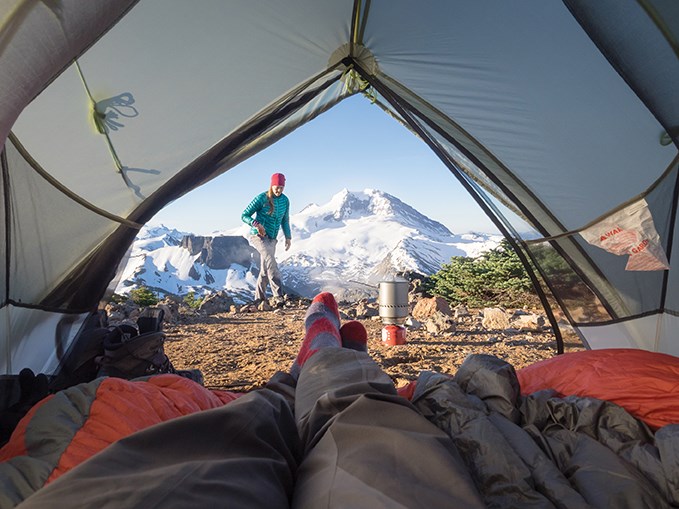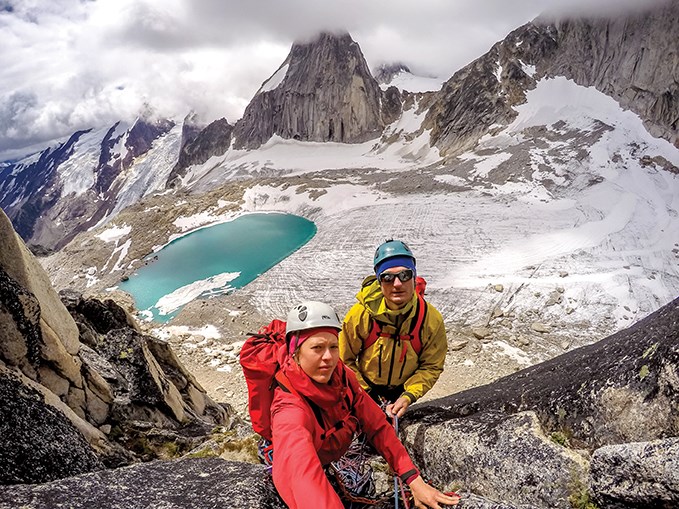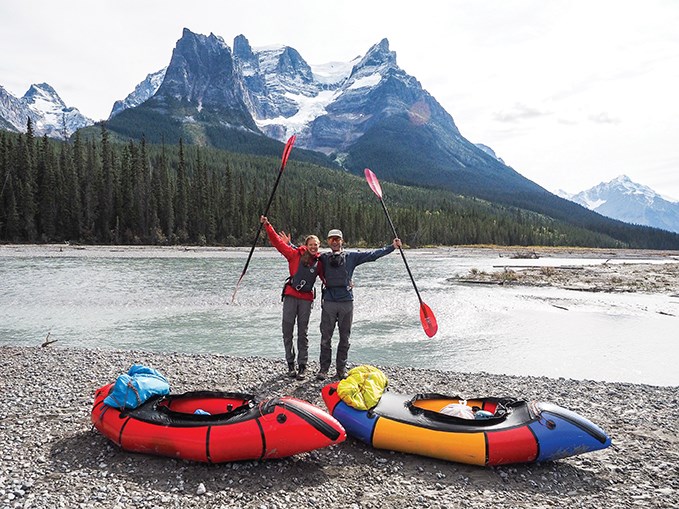For the last seven years or so my wife Spring and I have been on a journey to explore and find new ways to experience the mountains around �鶹�����and beyond. We work together most days and in our free time, we travel into the wild to test our mettle and enjoy the quiet and solitude of these places.
Travel in remote natural places definitely puts a strain on a relationship and one of the most common questions we get asked as married outdoor adventurers is how we manage to maintain our relationship in environments that can be stressful even at the best of times. Like all married couples, we bicker and quarrel on occasion, but we always make it work.��
We have some simple advice for any couples thinking of taking their relationship to the mountains.��
��
��1. Communicate expectations:
��
The other advice in this article will come under the umbrella of this basic rule, try to not hold any unreasonable expectations of your partner. The simplest way to find out if an expectation you have is unreasonable is to communicate it openly.
This applies to any team or group travelling in wild places but it is even more important for partners in an emotional relationship that already have a lot of expectations tied to it, such as compassion, respect, consideration, etc.
Expectations that are specific to the mountains can include: Who will be navigating? Who will be carrying the bulk of the weight? Who will be preparing the lunch for the day and dinner that night? Will one person be carrying all the food and snacks or is each person looking after themselves? When difficulties are encountered, who leads the way?
How a couple operates at home may not be how they will operate while out backpacking or camping in the mountains. When expectations are not met it can lead to frustration and annoyance. But it can also be dangerous if, for example, critical items for safe travel are left behind because it wasn’t communicated who would be responsible for that equipment.
��
2. Avoid gender stereotypes:
��
Gender expectations also play a large role in the frustration and stress that can be felt between partners while in the mountains.��
Examples of gender stereotypes include that the man will always be the strongest, show fewer emotions, carry the heaviest loads, be courageous and take the lead.��
Alternatively, people sometimes generalize that the woman will always be emotionally supportive, will follow, is physically weak and needs assistance, will look after the food and will keep the campsite clean.
In our experience, it is possible for all or none of those expectations to be true, and for them to change from person to person and moment to moment. Gender stereotypes should not apply in the mountains. Treat the partners you bring into the woods on an individual basis and assess abilities without assumptions.
For me and Spring, we’ve both been required to either lead, look after camp, offer support, carry heavier loads, etc. We both accept that all possible roles might become our burden at any given point during a trip. We view each other as equals.��
The mountains don’t see gender, so why should we.��

3. Allow emotions:
��
The mountains are revealing. We go into them to be surrounded by the beauty of the natural world but they can also test our willpower and resolve. In a lot of ways, those tests of our limits are why we go back again and again. We feel emotions more deeply when challenged in the wild.
Our muscles can burn and get tired, our minds can become weary and our emotional shield can sometimes break.��
We’ve witnessed both men and women cry out of happiness and out of fear in the mountains and have seen them fume and shout out of sheer frustration.��
But these trials and tribulations are to be expected and ultimately why we do this — to find those limits, push past them, and grow. To leave the wilderness, “bigger than the trees” as Henry David Thoreau once wrote. When Spring or I hit our limit and our emotions burst out, we accept it. We both know the same thing can happen to us. In those moments when the other individual is stronger, we try to offer support.
So those are our three short pieces of advice to hopefully make visiting the mountains near �鶹�����with your partner go smoother. How all this works for us is that we support each other, but never coddle each other. It can be tempting to shield and overprotect the ones we love, but difficulty and discomfort are part of the transformative experience of travel in the mountains.��
Visit wild places, visit them together and, on the commute to the trailhead, talk openly about your expectations for the day. You might be surprised what you learn.
��





